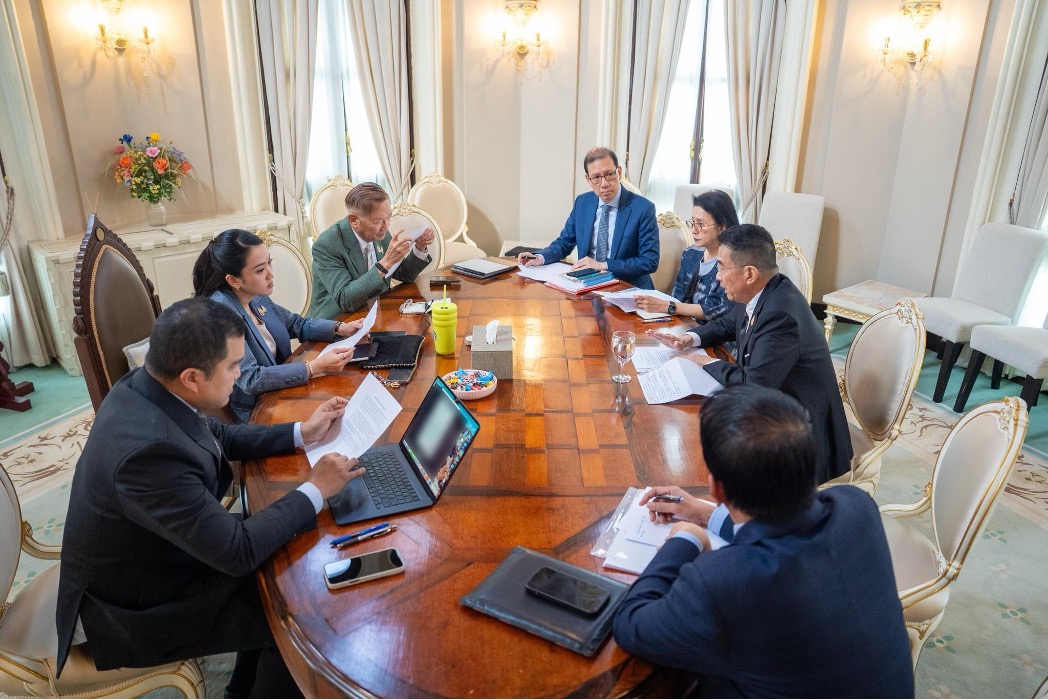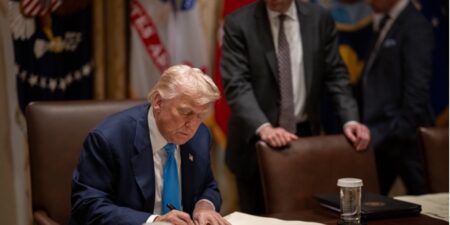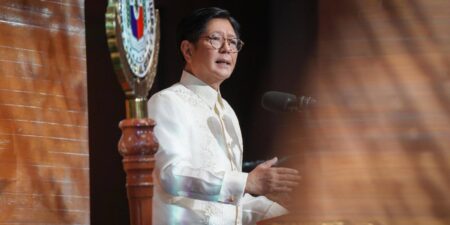BowerGroupAsia Senior Adviser Dr. Thitinan Pongsudhirak wrote an update to clients on Thailand’s budget deliberations and border conflict with Cambodia.
Context
- When Thailand’s fiscal year 2026 budget of THB 3.8 trillion baht ($115 billion) began three days of deliberation in its first reading in Parliament May 28, it was supposed to be the main political event of the week. The coalition government led by Pheu Thai was dramatically grilled by the opposition Prachachon Party over pricing irregularities, misallocation of funds, misplaced priorities and deficit spending that had led to fiscal profligacy and unsustainable debt obligations. As widely expected, the vote in favor was in line with government and opposition numbers in the lower house by a ratio of 322 to 158. But away from the budget debate, the real drama was along the porous Thai-Cambodian border where an intensifying military confrontation gripped both nations.
- In the early hours of May 28, small border units of Thai and Cambodian forces clashed over a forested enclave called Chong Bok in Thailand’s northeastern Ubon Ratchathani province, resulting in the death of one Cambodian soldier. The shootout goes back to simmering tensions since February when Cambodian troops and family members were seen to have encroached on an agreed buffer zone. It sparked what has degenerated into a full-scale, nationalism-fueled bilateral military and whole-of-society confrontation between the two countries. Troop reinforcements, tanks and artillery pieces have reinforced opposing positions in an ongoing face-off, buttressed by partisan media and strong public sentiment on both sides. In less than two weeks, Thailand and Cambodia are again at each other’s throats over border issues.
Significance
- On its shortcomings, the Thai side did not adequately address the Cambodian soldier’s death with appropriate apology and recompense. Thailand’s fragile coalition government and weak political system over the past two decades made it vulnerable to Hun Sen’s offensive. Now that Thailand has restricted border crossings and commercial flows at Cambodia’s expense, a measure of deescalation is in play amid continuing brinkmanship and mutual threats. Thailand could also expel and deport reportedly close to a million Cambodian low-cost laborers and turn up political heat for the Hun family government. As in the past, Cambodia will try to internationalize the issue and bring the disputed border areas to the International Court of Justice, while Thailand will try to keep it all bilateral.
- For Cambodia, it is likely that the current huff-and-puff will persist until sufficient steam is let off at home and the Cambodian side realizes that its internationalization will go nowhere while its border trade and local economy suffer. The Thai government will need to overcome conservative right-wing backlash at home and come up with conciliatory gestures to defuse and back off, such as restitution for the dead Cambodian soldier. Overall, the border situation could get worse, but a semblance of status quo will likely reappear in the coming days.
Implications
- The Association of Southeast Asian Nations, rotationally chaired by Malaysian Prime Minister Anwar Ibrahim, is seen as completely impotent as two of its members openly plan for military conflict. For business prospects, the overlapping claims area between Thailand and Cambodia is off limits indefinitely, even though both countries need the energy resources from it. All of the external major powers from the United States and the United Nations to especially China are unlikely to wade in on the Thai-Cambodian tussle in preference for the status quo to return bilaterally.
- Meanwhile, Thailand’s budget situation is par for the course. No Thai government has collapsed due to budget deliberations. The second and third readings will take place over the next three months before promulgation on October 1. The opposition will try to trim down wasteful spending and pork barreling, but the amount will likely be a small fraction due to parliamentary numbers. However, what bears watching is the rising public debt to 64 percent of GDP with an increased ceiling of 70 percent, which may be raised further. As fiscal conservatism was Thailand’s long-standing attribute, forward budget obligations and debt repayments will increasingly be a liability.
We will continue to keep you updated on developments in Thailand as they occur. If you have any comments or questions, please contact BGA Senior Adviser Thitinan Pongsudhirak at thitinan@bowergroupasia.com or BGA Thailand Managing Director Teresa “Art” Siripant at tsiripant@bowergroupasia.com.
Best regards,
BGA Thailand Team

Senior Advisor
Thitinan is a renowned scholar, journalist and expert in international relations and domestic politics across Asia. He has spent more than three decades analyzing and advising on Thailand and the region’s political economy, geopolitics and policy. He helps BGA and clients understand in-depth the global, regional and domestic issues that affect business. Thitinan is a professor of international relations and international political economy at Bangkok-based Chulalongkorn University’s Faculty of Political Science and a senior fellow at its Institute of Security and International Studies. He has lectured widely at local and international universities, military colleges and international organizations on political and ...
Read More


























